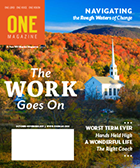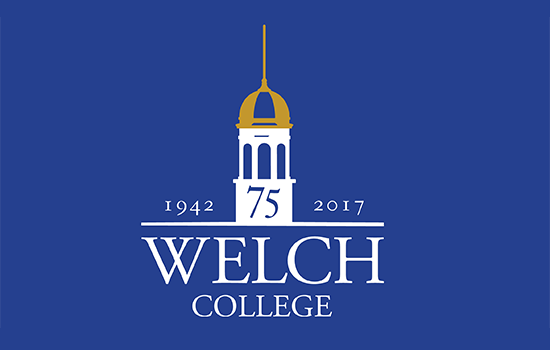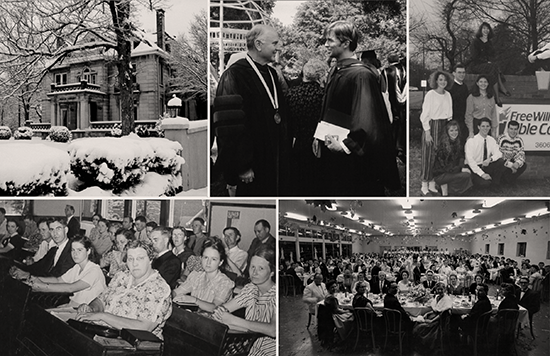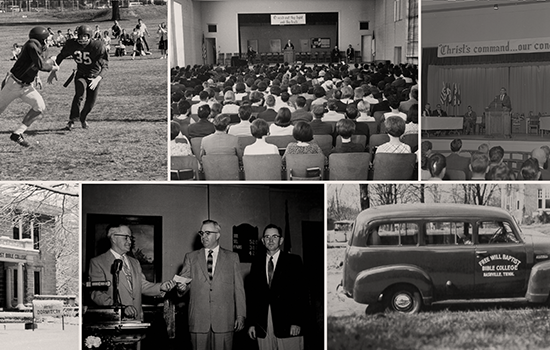
October-
November 2017
The Work Goes On
------------------
|






Light and Truth: Celebrating the First 75 Years of Welch College
By J. Matthew Pinson
The year was 1942. The country had emerged from the Great Depression and found itself in the midst of World War II. That year was a turning point for the National Association of Free Will Baptists, which had formed in 1935 when the two largest regional Free Will Baptist conferences east and west of the Mississippi united.
One of the association’s first orders of business was to form an educational committee headed by John L. Welch, the chief architect of the formation of the new association, and its elected moderator. Two Free Will Baptist colleges, Eureka College in North Carolina, and Tecumseh College in Oklahoma, had burned during the Depression. But in His amazing providence, in the middle of a world war, God was leading Free Will Baptists to establish a new college.
Celebrating 75 Years of Welch College-2 from Welch College on Vimeo.
The growing sense of the need for higher education for Free Will Baptists is captured by the words of one of its strongest proponents, Agnes Frazier:
We who would meet the needs of this distraught age must look at our conditions and see that we as a church must recognize the interlacing of religious interest with every other interest in our national life. If the Free Will Baptist message is worth preserving, it is worthy of intelligent interpretation to our young people . . . who are to be the leaders of thought and life for their generation in our church.
These young people know that if they are to get a thorough grounding in truth and ethics…they can only get it in an institution that is avowedly Christian. These noble young people are begging that we furnish a Christian institution, supported by Free Will Baptists, where they may become better equipped for God’s service.
The Board of Education chose Nashville, Tennessee, centrally located among the major centers of the denomination in the South and Midwest, as an ideal site for the new college. In September 1941, they purchased a building on Richland Avenue in the historic Richland-West End neighborhood. That building later became known as Davidson Hall. They named the school Free Will Baptist Bible College.

The board selected Free Will Baptist pastor Linton C. Johnson as the first president. He came to Nashville from South Georgia with his wife Ruth, a Pennsylvania native. The 29-year-old southern gentleman would come to exert more influence on the Free Will Baptist denomination than anyone else in the 20th century. Under his leadership, the college moved from a fledgling Bible school to an accredited Christian college with numerous new buildings and programs of study.
Johnson envisioned more than a Bible school, placing great value on the Western tradition of the liberal arts and sciences and the canons of classical learning. Extending the Kingdom of Christ was the college’s aim, as reflected by the motto Ruth Johnson chose, from Psalm 43:3, “O send out Thy light and Thy truth.”
Nine students gathered at that building on Richland Avenue in 1942. The original faculty and staff numbered four, including such luminaries as Laura Belle Barnard, J. R. Davidson, and Henry Melvin. Originally a two-year institution, the college added a third year of study in 1949 and a fourth year in 1950, awarding its first bachelor’s degrees to five seniors in 1951.
God worked through gifted faculty in those early years, such as L. R. Ennis, who served as president for three years; missionary pioneers Laura Belle Barnard and LaVerne Miley; registrar and later academic dean and then president Charles Allen Thigpen and his wife Laura; treasurer E. B. McDonald; and teachers and leaders such as J. P. and Anna Barrow, Leroy Forlines, Robert Picirilli, Ralph Hampton, and Mary Ruth Wisehart.
Under Johnson’s leadership, the college experienced phenomenal growth, seen in the many buildings constructed from the 1950s through the 1970s. That one building on Richland Avenue expanded to more than 18 buildings by the 1980s.
But the heart of Free Will Baptist Bible College was not in the buildings; it was students, whom God was calling from Free Will Baptist churches around the world to invest themselves in Christian service to Christ, His Church, and His world. These students went on to provide almost half of the denomination’s pastors, more than 80% of its missionaries, and myriad lay leaders in local churches who served as salt and light in education, the marketplace, and public life.
The college mission was advanced by three presidents after Johnson’s retirement in 1979. Dr. Charles A. Thigpen moved the college forward from 1979 to 1991, adding programs and sustaining the college through difficult times. He and his wife Laura had an immeasurable influence on the character and development of the college, serving for four decades before retirement.

Dr. C. Thomas Malone became president in 1991, with his wife Verna, and served for 11 years, leading the college to achieve SACS accreditation, adding many new academic programs, and spearheading the vision for relocation of the college. Dr. J. Matthew Pinson joined the college as president in 2002, and with his wife Melinda, has served for 15 years, continuing to add majors and build the college’s academic reputation, and leading the college through a name change and relocation to its new campus in Gallatin, Tennessee.
The college changed its name to Welch College in 2012 to signify its development into a more comprehensive Christian college and to open more doors for missionary presence in restricted access countries. It was named in honor of that original Educational Committee chairman John L. Welch and his wife Mary, who served the college faithfully for many years.
In 2017, after a quarter-century of planning and the sale of the West End campus, Welch College began classes at its new home in Gallatin, Tennessee. Constructed in a historic, colonial style, the beautiful new campus is situated on more than 100 acres in a growing suburban area of greater Nashville.
Many things have changed since L. C. Johnson and that small band of students and faculty gathered on Richland Avenue 75 years ago. But one thing has endured: Welch College continues to fulfill its original mission of bringing students into a Christian community of faith and learning where they can discover God’s calling and be equipped to fulfill it, to be educated as leaders to serve Christ, His Church, and His world. Welch remains steadfast in its commitment to that mission, as it continues building on the faithful legacy it has received.
About the Writer: J. Matthew Pinson is president of Welch College. Learn more about the college: www.Welch.edu.
|
|

